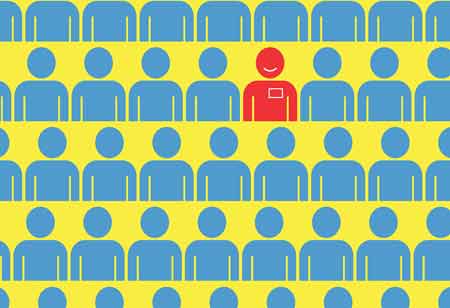THANK YOU FOR SUBSCRIBING
Be first to read the latest tech news, Industry Leader's Insights, and CIO interviews of medium and large enterprises exclusively from Hrtech Outlook
THANK YOU FOR SUBSCRIBING

By
HR Tech Outlook | Monday, August 29, 2022
Stay ahead of the industry with exclusive feature stories on the top companies, expert insights and the latest news delivered straight to your inbox. Subscribe today.
Human resources (HR) technology was already well on its way to new developments before the pandemic, but Covid-19 significantly accelerated the entire industry.
FREMONT, CA: From adopting the best practices of the gig economy to increasing the use of artificial intelligence, the following are some HR technology trends to watch in 2022.
Increase in hybrid work technology. The back-to-the-office debate may be on hold due to the Omicron variant, but HR leaders must abandon outdated beliefs that employees are most productive when they are in the office. In 2022, work is viewed as the location where employees produce their best work, rather than a physical location, and employers will provide employees with the flexibility to match their work environment with their work goals.
However, hybrid work models bring with them the fear of dividing workers into two classes—individuals who work remotely and those who operate in offices in close proximity to their superiors and corporate executives. For instance, 38 percent of knowledge workers surveyed by Citrix believe remote employees will be disadvantaged because they do not work from a central office.
Remote Communities
It has been one of the most significant trends to sweep the industry in recent years. Remote work is no longer an anomaly but is rapidly becoming the norm across all countries and industries.
The capacity to work remotely is quickly becoming one of the most desired employee perks, but it also presents a significant administrative challenge—businesses must now be prepared to unite employees in different time zones and take steps to ensure that all employees have equal learning and development opportunities. On the other hand, it provides employers access to previously inaccessible talent pools while reducing recruitment expenses.
Remote recruitment
Recruiters can now choose from a larger pool of candidates but need more effective tools to reach the individuals they wish to hire. Sites that tie employers with prospective employees are gaining popularity because they benefit both recruiters and candidates; examples include well-established companies such as Upwork or Fiverr, as well as innovative platforms such as Humans.
Cloud-based HR
Comprehensive HR platforms in the cloud represent the future of resource management. There are already several all-in-one HR platforms available, including the one utilized by Buffer, which integrates a variety of core HR management functions, such as payroll, benefits, time management, onboarding, and collaborative software. The HR department may also be distributed when organizations have a distributed team.
The widespread adoption of cloud-based HR software is not limited to globally distributed teams. It enables HR professionals to work with real-time data and is ideal for rapidly expanding businesses.
Simultaneously, the employee self-service model gives employees greater control over their data, benefits, and tasks while providing employers with more efficient tools for gauging employee engagement and productivity. There is a discernible shift in the industry from using HR software designed to assist HR teams to integrated suites that support employees and managers simultaneously.
Wellness Programs with an Emphasis on Mental Health
Employees' wellness affects the organization as a whole, team productivity, and job performance. Several projects in the works aim to assist employees in avoiding burnout and caring for their mental and physical wellbeing, ultimately resulting in higher employee retention rates.
Platforms employing gamification and wearables will continue to expand, but there will be a notable shift in emphasis toward employees' mental health. One in five Americans has a mental disorder, and businesses are beginning to comprehend what this may imply for their overall performance. Thus, employee data will fuel more personalized health and wellness systems.
Already, solutions are emerging to address these issues. One example is Lantern, a mental health startup that uses digital cognitive-behavioral therapy tools to combat anxiety and depression and has partnered with large digital health care providers to offer programs that teach people how to manage their anxiety, stress, and body image.



